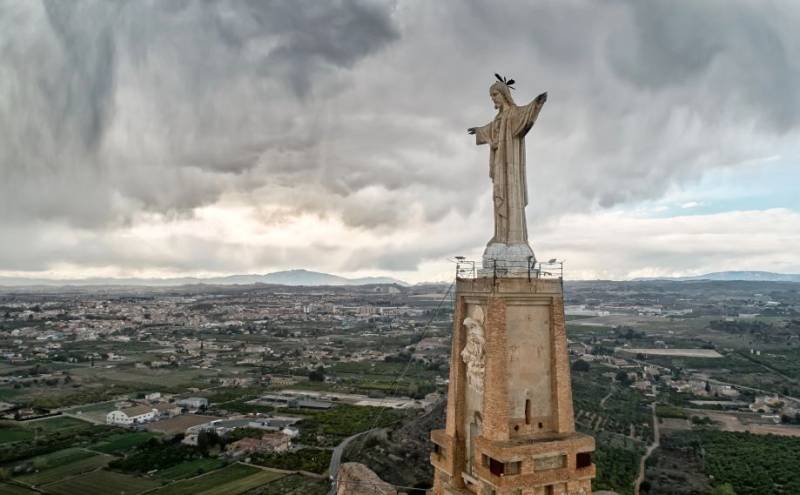

- EDITIONS:
 Spanish News Today
Spanish News Today
 Murcia Today
Murcia Today
 Alicante Today
Alicante Today
article_detail
Date Published: 10/06/2022
ARCHIVED - Weather experts predict more intense and frequent droughts for the rest of the century
Weather experts are forecasting more intense and frequent droughts until the end of the century as temperatures continue to soar in Spain

Spain is set to bake in temperatures in excess of 40ºC as a heatwave engulfs much of the country, and if the findings of the 'Report on the state of the climate in Spain 2021' compiled by the State Meteorological Agency (Aemet) are anything to go by, the extraordinary conditions are likely to become even more extreme.
Using scientific data, the report reveals that 2021 was the 11th warmest year since 1961, with two record temperatures: 47ºC in Alcantarilla, Murcia and 47.4ºC in Montoro, Córdoba, the latter being the highest ever recorded in the country.
And Aemet researchers predict more intense and frequent droughts between now and the end of the century, a phenomenon they link directly to climate change caused by human activity.
Aemet spokesman Rubén del Campo described 2021 as "very hot and dry", the 11th hottest in Spain in the last 60 years and the 9th in the 21st century.
Last year also saw 13 record warm days and no record cold days – despite the phenomenon of the Filomena squall – which, according to Aemet, confirms a worrying trend: it has now been eight years in a row with temperatures above the normal average and the last cold year in Spain was 2013.
June is already shaping up to be an abnormally hot month with temperatures close to 40ºC in the Region of Murcia this week.
But it's not just the mercury that's rising. The temperature of sea water, the main climate regulator, also rose 0.7ºC in the Mediterranean and Gulf of Cadiz last year, and below-average seawater temperatures have only been recorded twice in the last 27 years.
"Globally, 2021 was an exceptionally warm year, with extreme events such as the heatwave that swept through British Columbia in Canada, with peaks of 50ºC and large forest fires. Torrential rains in central and western Europe last July are other anomalies associated with a changing climate prone to extreme events," explained Aemet.
Closer to home, 2021 also left the most intense heatwave in Spain since 1985 and with a greater geographical amplitude, affecting 36 provinces between August 11 and 16 in the peninsula and in the Canary Islands between August 15 and 19.
Strangely, there were actually fewer hours of sunshine on the Mediterranean coast last year than in 2020. In the Atlantic area, on the other hand, there was more sunshine.
"Heat kills," bluntly warns Aemet researcher Rubén del Campo, who linked human activity, and specifically the emission of greenhouse gases such as CO2 and methane, as the main accelerators of climate change.
"In 2021 we experienced a new record of greenhouse gases, with 416.5 ppm [parts per million of CO2], which is an increase of 2.5 ppm compared to 2020," he explained, adding that this growth in climate-altering pollution has been sustained since 1984.
In contrast, rainfall was 11% lower than the average for 1981 to 2010 last year, although, according to Aemet, the Region of Murcia was considered "wet to very wet" in 2021.
Image: Pixabay
staff.inc.and
Loading
Sign up for the Spanish News Today Editors Roundup Weekly Bulletin and get an email with all the week’s news straight to your inbox
Special offer: Subscribe now for 25% off (36.95 euros for 48 Bulletins)
OR
you can sign up to our FREE weekly roundup!
Read some of our recent bulletins:
Discount Special Offer subscription:
36.95€ for 48 Editor’s Weekly News Roundup bulletins!
Please CLICK THE BUTTON to subscribe.
(List price 3 months 12 Bulletins)
Read more stories from around Spain:
Contact Murcia Today: Editorial 000 000 000 /
Office 000 000 000


























